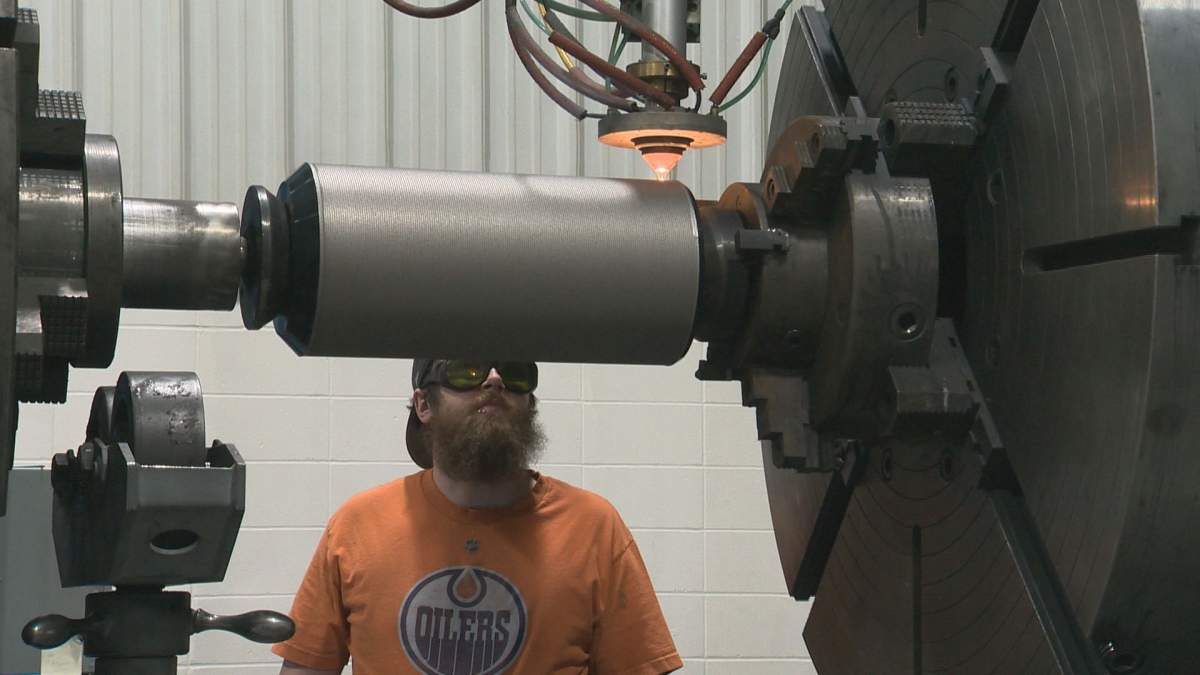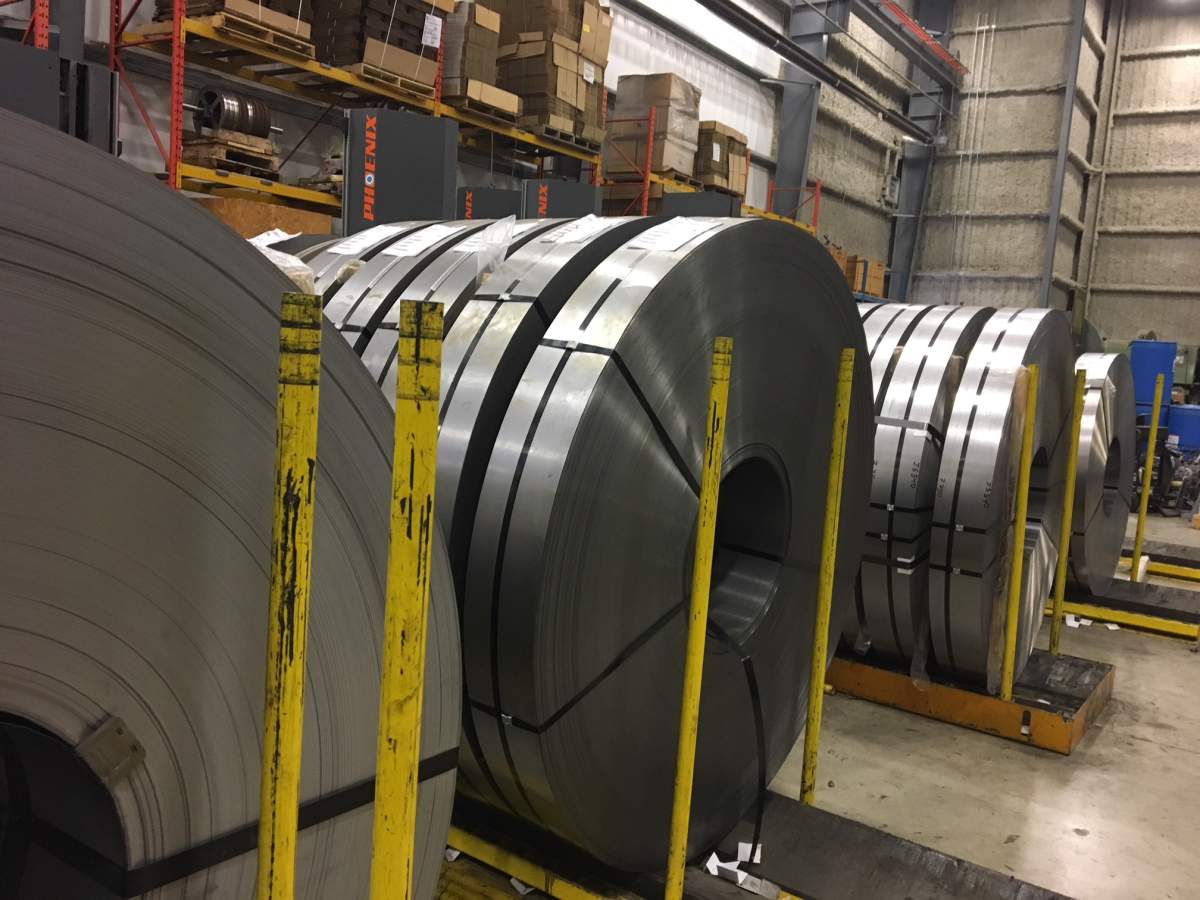As the ongoing trade dispute over steel and aluminum rages on, Canadian producers and manufacturers are caught in the middle. As Canada’s largest trade association, Canadian Manufacturers and Exporters has more than 2,500 members and it tells Global News every single one is affected.

Global News spoke with a number of steel manufacturers across the country. Here’s what three of them are up against.
READ MORE: Companies receive $11,000 in duty relief after Ottawa collects $286M in counter-tariffs
Apollo Machine: Leduc and Edmonton, Alta.
How it is affected: Apollo Machine employs 250 people at three facilities where it offers a wide range of machining services.
It has been hit hardest by counter-tariffs on the steel it needs to source from south of the border. Customers of its subsidiary, Apollo Clad, demand very specific types of steel bars for additive manufacturing that aren’t available in Canada. In some cases, the steel it needs is under an American patent.
It has been trying to source the product outside the U.S., but globally prices have been climbing due to the demand sparked by the trade dispute. And, like many others, it doesn’t want to hurt its longstanding relationship with its American supplier. Apollo Machine buys $9 million in steel annually and estimate counter-tariffs will cost the company $3 million this year if nothing changes.
It says the new Canadian rules are making its business non-competitive — right after it recovered from the oil and gas downturn in Alberta.
Is it getting help: The company applied for tariff relief, but all it got in response so far was an email saying the process would take weeks. Research and development manager Doug Hamre has launched a petition sponsored by Conservative MP Mike Lake, calling for Canada to get rid of the surtaxes on materials not produced in Canada, or at the very least, make the application process for duty relief programs easier.
Autotube: Strathroy, Ont.

Get weekly money news
How it is affected: Autotube makes steel and stainless steel tube components like dipsticks and oil tubes that are eventually used by the big three automakers as well as Toyota. It employs 200 people at two facilities.
It has been hit by both American and Canadian-imposed tariffs. First, American suppliers have upped their prices. But at home, the company is subject to Canadian counter-tariffs which are costing $100,000 a month. It says it can’t get the coiled steel easily in Canada, the Canadian prices are much higher, and in addition, it has a 20-year relationship with its American supplier.
Is it getting help: Autotube has hired a consultant to try and get the product reclassified as an auto part, and if that fails, to try and get some duty relief.
WATCH: How tough U.S. tariffs are affecting Canadian workers

Jem Strapping Systems: Brant County, Ont.
How it is affected: Jem Strapping Systems makes all kinds of strapping used to ship products, but the vast majority is made out of steel. It employs about 30 people in its Brant County, Ont., plant.
About half of the company’s steel comes from Canada and the other half from the U.S., so it is affected by tariffs on both sides of the border. President Paul McGrath estimates his business has lost more than a million dollars so far, and is losing half his revenue to the tariff issue in general. Sales are down and McGrath has lost a lot of his American customers who are afraid of uncertainty.
Is it getting help: After submitting paperwork and undergoing a full-day audit by Canada Border Services Agency, Jem qualified for Canadian duty relief. But he says it’s not coming fast enough and he’s still stuck paying duty on scrap steel he can’t sell back to the U.S. — up to $10,000 a month, plus the cost of a bookkeeper to keep track of his new inventory system — separating U.S. and Canadian product.





Comments
Want to discuss? Please read our Commenting Policy first.